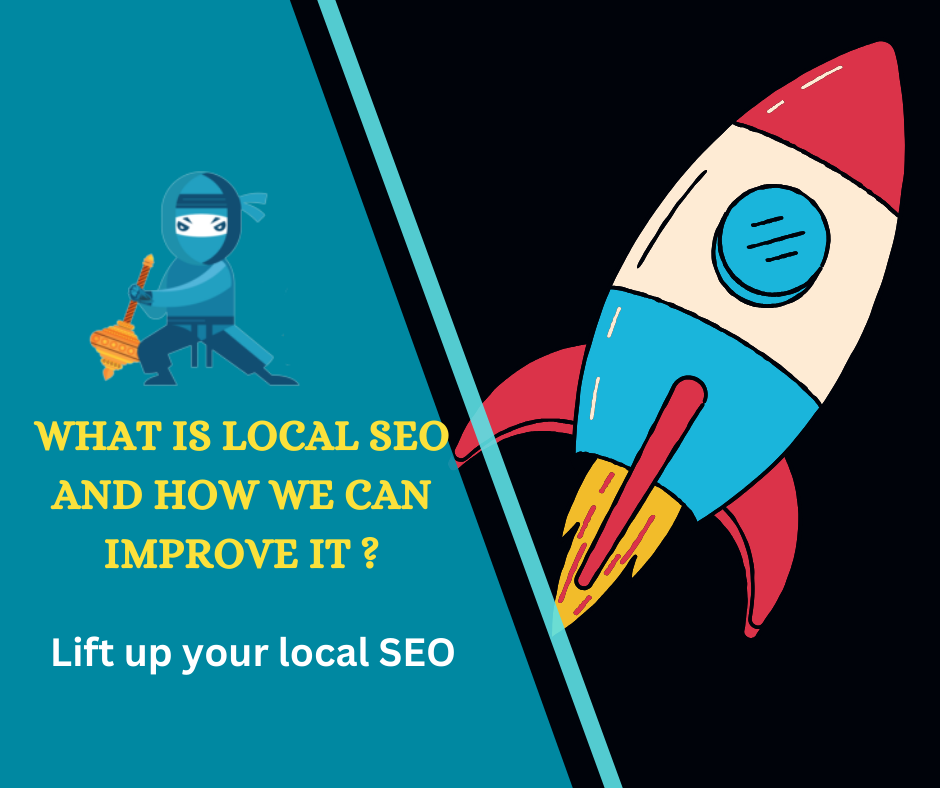What is local SEO and How we can improve it
In the vast realm of digital marketing, there’s a crucial area that often gets overlooked but holds immense power for businesses targeting local customers: Local SEO.
What is Local SEO?
Local SEO, or local search engine optimization, is the practice of optimizing your online presence to attract more business from relevant local searches. When users search for products or services “near me” or in a specific location, search engines aim to deliver the most relevant results based on the user’s location. Local SEO ensures your business appears prominently in these local search results. Also read How to rank google my business on top ?

How Can You Improve Local SEO?
1. Claim Your Google My Business Listing:
Google My Business (GMB) is a free tool that lets you manage how your business appears on Google Search and Maps. Claiming and optimizing your GMB listing is crucial for local SEO. Make sure your business name, address, phone number, and website are accurate and up-to-date. Also, encourage customers to leave reviews on your GMB profile.
2. Optimize for Local Keywords:
Research and incorporate local keywords that your target audience is likely to use when searching for businesses like yours. Include location-specific terms in your website content, meta tags, headings, and URLs. This helps search engines understand where your business is located and what areas you serve.
3. Build Local Citations:
A citation is any online mention of your business’s name, address, and phone number (NAP). Consistent NAP information across different online directories and platforms reinforces your business’s legitimacy and authority in the eyes of search engines. Ensure your NAP details are consistent across all online platforms, including local directories, review sites, and social media profiles.
4. Get Customer Reviews:
Positive reviews not only influence potential customers but also play a significant role in local SEO. Encourage satisfied customers to leave reviews on platforms like Google, Yelp, and Facebook. Respond to reviews, both positive and negative, to show that you value customer feedback and engagement.
5. Optimize Website for Mobile:
With the increasing use of smartphones, many local searches are performed on mobile devices. Ensure your website is mobile-friendly and loads quickly on all devices. A responsive design improves user experience, which can positively impact your local search rankings. Also read 10 Simple Wix SEO Tips to Skyrocket Your Website’s Ranking
FAQ:
Q: Is local SEO only important for small businesses?
A: No, local SEO is essential for businesses of all sizes that serve customers in specific geographic areas. Even large corporations with multiple locations can benefit from optimizing their online presence locally.
Q: How long does it take to see results from local SEO efforts?
A: The timeline for seeing results from local SEO efforts can vary depending on factors like the competitiveness of your industry, the quality of your optimization efforts, and the consistency of your NAP information across online platforms. Generally, it may take several weeks to months to see significant improvements in local search rankings.
Q: Can I do local SEO myself, or do I need to hire a professional?
A: While it’s possible to handle some aspects of local SEO yourself, such as claiming your Google My Business listing and optimizing your website content, hiring a professional SEO agency or consultant can provide expertise and save you time. They can help you develop a comprehensive local SEO strategy tailored to your business goals.
Conclusion:
In today’s digital age, having a strong online presence is crucial for local businesses to thrive. Implementing effective local SEO strategies can significantly improve your visibility in local search results, drive more traffic to your website, and attract more customers to your physical location. By claiming your Google My Business listing, optimizing for local keywords, building citations, encouraging customer reviews, and ensuring your website is mobile-friendly, you can enhance your online presence and stay ahead of the competition in your local market.
So, don’t underestimate the power of local SEO—it could be the key to unlocking your business’s full potential in your community and beyond.

